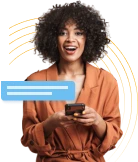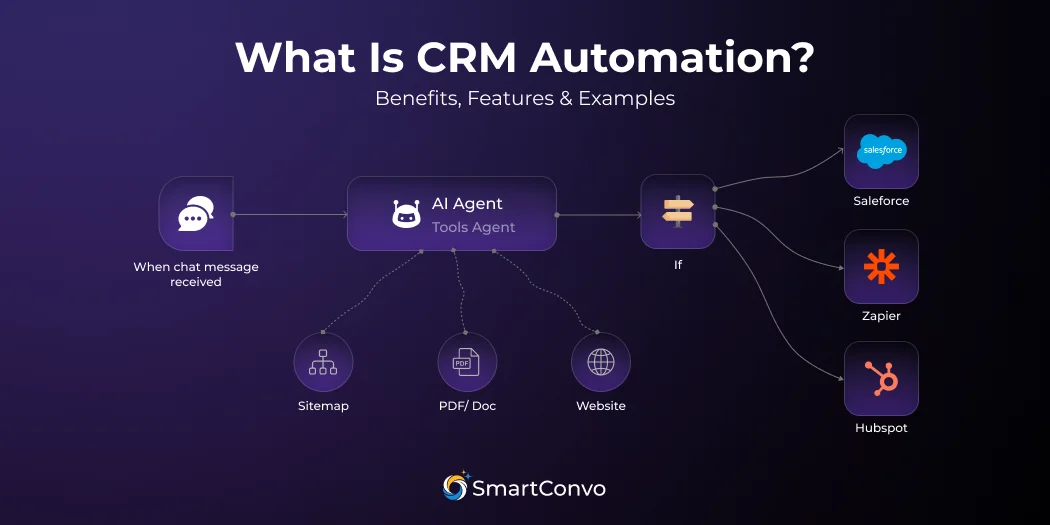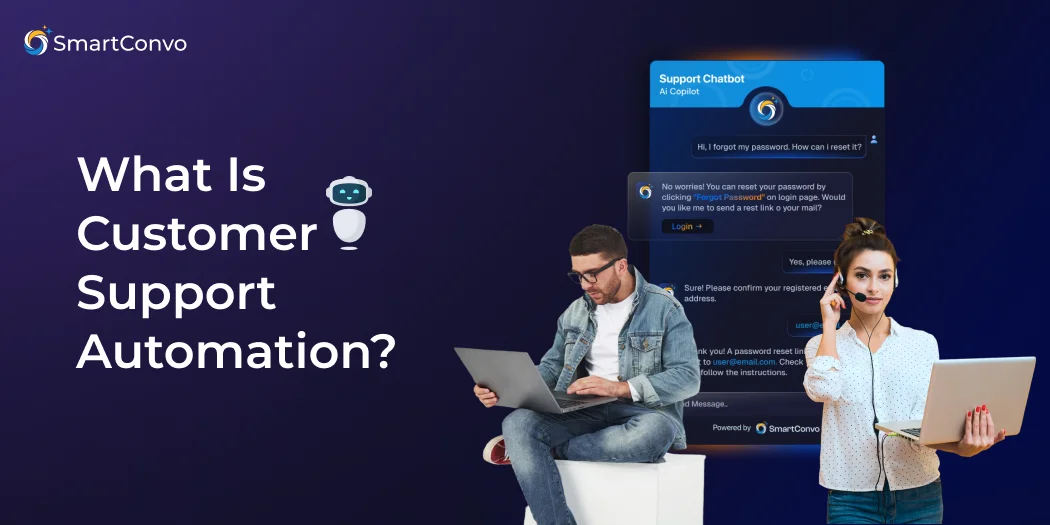The way we work is changing rapidly, and nowhere is this more evident than in Human Resources. With companies gearing up to handle remote work, global teams, and growing employee needs, HR chatbot companies are stepping in to revolutionize HR processes with advanced technology. Among the most exciting innovations is generative AI in HR, which powers tools like AI-driven chatbots to revolutionize the way HR teams operate.
Imagine a tool that can answer employee questions instantly, help with onboarding, gather feedback, and even support training initiatives—all while freeing up HR professionals to focus on strategic priorities. That’s precisely what an Human Resource chatbot does. Whether you’re a CEO, CHRO, or HR professional curious about how to integrate cutting-edge solutions into your operations, this guide dives deep into what makes these chatbots game-changers.
By the end of this blog, you’ll understand what an AI HR chatbot is, its various functionalities, how it transforms HR operations, real-world use cases, and how you can seamlessly integrate it into your business.
What is an AI-Powered HR Chatbot?
An AI-powered HR chatbot is an advanced digital assistant that uses artificial intelligence and natural language processing (NLP) to interact with employees, addressing their queries and assisting in HR-related tasks. At its core, it mimics human interactions, making your HR department available 24/7—without requiring an actual person.
Because generative AI powers these chatbots, they may provide dynamic responses instead of depending solely on a strict set of rules. They are made to have meaningful interactions with workers, respond to their questions, help with HR procedures, and make it easier for HR managers to handle their daily responsibilities.
An AI HR chatbot’s primary strength is its capacity to offer immediate assistance, pick up knowledge from conversations, and keep becoming better. Because of this, they are extremely flexible tools that can meet the changing demands of HR departments.

Types of HR Chatbots
Not all HR chatbots are the same. Some specialize in recruitment, while others optimize internal processes. The LLM chatbot stands out for its advanced language capabilities. Here’s a breakdown of the different types and their offerings:
- Recruitment Chatbots: Automate candidate screening, schedule interviews, and respond to FAQs, helping HR teams recruit faster and more effectively.
- Onboarding Chatbots: Ensure seamless onboarding by helping new hires with paperwork, introducing them to team members, and walking them through company policies step by step.
- HR Helpdesk Chatbots: Tackle routine employee queries about payroll, leave policies, or company benefits, reducing the need for HR team intervention.
- Policy Chatbots: Simplify complex workplace policies by turning HR documents into digestible conversations. Employees can simply ask, “How many sick leave days do I get?”
- Surveys and Feedback Chatbots: Enable quick employee check-ins, gather anonymous feedback, and run engagement surveys to keep a pulse on company morale.
- Employee Engagement Chatbots: Facilitate team-building activities, provide motivational quotes, and share updates about workplace events—all tailored for improved employee engagement.
- Wellbeing Chatbots: Offer tips on mental health, work-life balance, and stress management. These bots are excellent for checking in on employees’ overall wellbeing.
- Training and Development Chatbots: Assist employees in signing up for courses, provide resources, and track progress in training programs.
- Performance Management Chatbots: Collect performance review insights, offer reminders for scheduled evaluations, and provide coaching feedback.
- HR Analytics Chatbots: Gather and analyse data to help HR professionals make data-driven decisions on hiring, training, and retention.
With such varied functionalities, Human Resource chatbots cater to almost every area of human resources, transforming how HR professionals spend their time.
Core Functionality of HR Chatbots

AI-powered HR chatbots are capable of handling a wide range of tasks, from simple queries to complex administrative processes. Here are some of the core functionalities:
Employee Onboarding
AI chatbots may help new hires with the onboarding process by answering their inquiries about corporate regulations, processing paperwork, and giving them important information. Human Resources employees need to spend less time and effort on repetitive duties as a result.
FAQ Management
AI chatbots may answer frequently asked questions on benefits, leave policy, business culture, and other topics, saving employees from contacting HR personnel with every query. This allows HR teams to focus on more strategic tasks while chatbots handle repetitive queries.
Employee Support
HR chatbots can provide round-the-clock assistance. The chatbot is constantly available to aid staff with training materials, payroll problems, or HR procedures.
Data Collection and Reporting
HR chatbots are capable of conducting surveys, gathering employee input, and even analyzing patterns in employee happiness or engagement. Additionally, they may provide reports using the data that has been gathered, which facilitates the evaluation of important indicators by HR teams.
Leave Management
Through the chatbot, employees can submit requests for time off and get permission, which expedites and streamlines the leave management procedure. The chatbot HR may even remind employees of their remaining leave balance, and HR personnel are alerted quickly.
Internal Communication
AI chatbots also serve as a channel of communication between HR and employees, providing crucial announcements, updates, and reminders. This makes it possible to guarantee that employees receive important information on time.
The chatbot for human resources is a comprehensive solution that meets the demands of the HR team as well as employees.
How AI-Powered HR Chatbots Transform HR Operations

There are several advantages to integrating HR AI chatbots into an organization’s HR operations, including increased employee satisfaction and process efficiency. AI chatbots are revolutionizing HR processes in the following significant ways:
Time and Cost Savings
HR professionals may save a lot of time and money by automating administrative operations like scheduling, processing requests, and responding to frequently asked questions. This makes it possible for HR departments to focus their energies on more strategic projects that have the potential to benefit the company more.
Enhanced Employee Experience
Chatbots driven by AI offer immediate assistance, cutting down on wait times for employees in need of help. Employee satisfaction and engagement are raised by the tailored responses and round-the-clock availability, which make it simpler for them to get the solutions to their questions.
Scalability
The complexity of manually administering HR processes increases with an organization’s size. Because HR chat bots are very scalable and can manage several conversations at once, HR functions will continue to function properly even during times of significant expansion.
Improved Accuracy and Compliance
AI chatbots can guarantee that human resources policies adhere to legal and corporate guidelines. They may instantly highlight any inconsistencies or problems, guaranteeing that HR procedures continue to adhere to legal requirements.
Better Decision Making
HR chatbots’ capacity to collect and evaluate data allows them to offer insights that support HR professionals in making data-driven decisions. AI chatbots provide useful insights for monitoring employee engagement, assessing the success of HR initiatives, or pinpointing areas in need of development.
Use Cases of HR Chatbots in Real-World Scenarios

AI-powered HR chatbots are already being used across various industries to improve HR operations. From streamlining recruitment to enhancing employee engagement, HR chatbot use cases include automating onboarding, answering employee queries, managing leave requests, and facilitating training programs. Here are a few real-world use cases:
Recruitment and Candidate Screening
Chatbots are frequently used in HR departments by businesses to do preliminary assessments of job applicants. The chatbot may pose a series of pre-formulated questions to applicants, assess their answers, and create a shortlist of applicants based on standards established by human resources departments. This expedites the hiring process and guarantees that only eligible applicants are forwarded to human resources specialists.
Employee Engagement and Feedback
HR departments may learn more about employee happiness and pinpoint areas for development by using HR chatbots to interact with their employees via surveys and feedback forms. For instance, following a training session or business event, the chatbot may immediately distribute engagement questionnaires.
Training and Development
Chatbots driven by AI can also help with employee training. They have the ability to exchange learning resources, suggest courses, and even monitor employee growth. Chatbots assist employees in more effectively developing their abilities by providing individualized learning experiences.
Payroll and Benefits Management
Chatbot for HR can assist employees with payroll and benefit-related inquiries. The chatbot may respond to inquiries on insurance coverage, bonuses, deductions, and pay dates, guaranteeing that staff members have prompt access to crucial information.
Integrating AI – Powered HR Chatbots into Enterprises

Integrating an HR AI chatbot into your enterprise requires careful planning and execution. Here are some key steps for successful implementation:
Define the Objectives
It’s crucial to specify your goals for the chatbot before launching it. It’s critical to match the chatbot’s capabilities with your HR objectives, whether those objectives are to improve employee experience, automate particular HR responsibilities, or improve communication.
Choose the Right Platform
The size and requirements of your company will determine which HR chatbot platform is best for you. Make sure the platform functions well with the HR software and tools you currently have.
Train the Chatbot
The secret to your chatbot’s success lies in training it. It must be knowledgeable about corporate culture, HR regulations, and frequently asked employee questions. Leveraging knowledge in AI, you can ensure the chatbot provides accurate and relevant responses. To maintain its effectiveness, update the chatbot’s knowledge base regularly.
Measure and Optimize
After going live, keep an eye on the chatbot’s performance and request user input. Over time, use this data to enhance the chatbot’s replies and maximize its usefulness.
AI-Powered HR Chatbots vs Traditional HR Practices
AI-powered HR bot provides a level of automation and scalability that is hard to match in traditional HR procedures, which mostly rely on manual processes and human contact. Traditional HR procedures and AI-powered HR chatbots vary primarily in the following ways:
Automation vs. Manual Processes: AI chatbots automate repetitive tasks, freeing up HR teams to focus on more complex responsibilities.
24/7 Availability: In contrast to traditional human resources professionals, which are constrained by office hours, chatbots provide employees round-the-clock assistance.
Instant Responses: While traditional HR departments may take longer to reply, particularly during busy hours, an AI chatbot HR system can answer employee questions quickly.
Future Trends in Chatbots for HR
As technology continues to evolve, the role of AI chatbots in HR will only grow. Some key trends to watch for in the future include:
Increased Personalization: Chatbots will be able to provide employees with ever more individualized experiences as AI advances, customizing replies according to each user’s preferences, job history, and career objectives.
Integration with HR Analytics: AI chatbots and HR analytics technologies will be increasingly closely combined in the future to offer better insights into employee engagement, behavior, and happiness.
Advanced Natural Language Processing: The whole conversational experience will be enhanced when advanced NLP is developed, allowing chatbots to comprehend and reply to increasingly complex requests.
AI-Powered Recruiting: AI chatbots will become increasingly common in the hiring process, handling everything from interviewing candidates to evaluating resumes and even forecasting their chances of succeeding in a position.
No Credit Card Required | 14 days Free Trial
Build Your Chatbot
Conclusion
The way businesses handle their human resource operations is being completely transformed by AI-powered HR chatbots. These chatbots showcase the immense potential of AI for business by automating tedious tasks, enhancing employee engagement, and offering immediate assistance. They free up HR personnel to focus on key projects that drive company growth while delivering employees a seamless, tech-driven experience. From hiring to performance management, they significantly boost productivity and streamline processes.
In addition to being efficient, these chatbots are essential for encouraging an innovative culture in businesses. Businesses may equip their teams with state-of-the-art technologies that promote improved decision-making and raise employee happiness by utilizing AI for everyday HR tasks. They ensure that HR procedures stay efficient and personable by serving as a link between technology and human engagement.
As enterprises continue to adopt conversational AI, Human Resources chatbots will become an integral part of modern workplaces. They not only optimize HR operations but also contribute to creating a more agile and responsive HR ecosystem. Investing in an AI-powered HR operations chatbot is no longer just a technological upgrade—it’s a strategic move toward a more efficient and employee-centric future.
Frequently Asked Questions (FAQ)
An AI-powered HR chatbot is a virtual assistant that uses artificial intelligence and natural language processing (NLP) to interact with employees. It automates HR tasks such as answering queries, managing employee records, and streamlining processes like recruitment, onboarding, and feedback collection.
HR chatbots improve operations by automating repetitive tasks, providing instant responses to employee queries, enhancing employee engagement, and reducing the workload on HR teams. They enable HR professionals to focus on strategic initiatives, improving overall efficiency and productivity.
While HR chatbots excel at managing routine tasks and FAQs, they may direct complex or sensitive queries to human HR representatives. This ensures that critical issues receive the attention they deserve while routine questions are handled efficiently.
Yes, HR chatbots can be customized to suit an organization’s unique requirements. Businesses can tailor chatbots to handle specific HR functions, integrate with internal systems, and align with company policies and workflows.
No, HR chatbots are not meant to replace HR professionals. Instead, they complement HR teams by automating repetitive tasks and providing instant support, enabling HR professionals to focus on strategic, people-focused initiatives that require a human touch.













